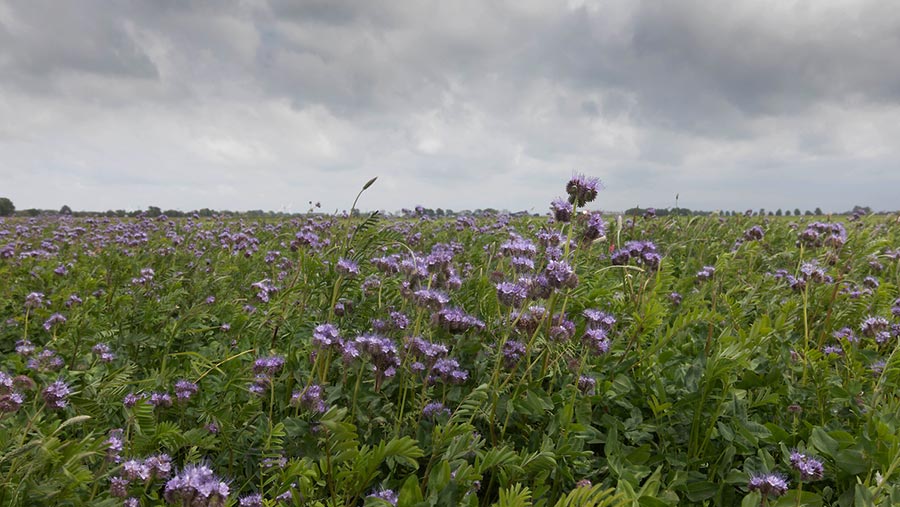Almost 1,000 farmers apply for SFI pilot scheme
 © Tim Scrivener
© Tim Scrivener A total of 938 farmers in England have applied to join the Sustainable Farming Incentive (SFI) pilot scheme, Defra has revealed.
It announced earlier this year that 2,178 had submitted an expression of interest to join the scheme, which is one of three being introduced as part of the new Environmental Land Management (ELM) programme.
In an update published on the Future Farming blog, Defra said it was pleased by the level of interest shown by farmers in the pilot, which closed to applications on 30 September.
See also: What’s on offer for farmers as the SFI takes shape
“We wanted several hundred and had been aiming for 1,000, so this number of applications is pretty much bang on our target for a meaningful and useful pilot,” it said.
Pilot learning
The blog post said there was already learning to be applied from the application process, which would be fed into the scheme’s development ahead of its fuller rollout in 2022.
For example, some farmers had reported that the standards on offer were too inflexible, which meant they struggled to fit the options to their farm.
A number of farmers also said they were put off from doing more through the scheme because the payment rates on offer were not enough of an incentive.
Other complaints that Defra has also promised to address include the scheme being too complicated to understand without the support of an adviser, confusing online guidance notes and a variety of “bugs and gremlins” within the online application portal.
Simplification required
Claire Robinson, NFU countryside adviser, said it was clear talking to farmers who had applied for the pilot that it had taken a significant amount of time to put together their applications, so more work was needed around simplifying the offer.
“It has been a quite challenging process – I have never been part of a scheme where the guidance has been changing during an application window,” she said.
While the guidance notes looked simple enough at first glance, things were not as easy when you tried to apply them in practice.
“I know that people in the pilot found it quite hard in terms of applying it to individual fields and their business,” she said.
Defra has promised there will be lots of flexibility offered to farmers, but the guidance notes did not show how that would work on the ground.
“The narrative is about flexibility, but we need to know how that will play out.”
Ms Robinson said the NFU also agreed that published payment rates would need to rise if the scheme was to have wide appeal.
“We are all waiting with bated breath for the new payment calculations to come through in November,” she said.
Tenant sector
George Dunn, chief executive of the Tenant Farmers Association (TFA), said fortunately it did look like enough tenants had signed up to the pilot to enable Defra to look at the implications for the tenanted sector.
Defra has said that 22% of the applicants rent all or most of their land.
But Mr Dunn added that the TFA would be checking on the split of participants to see how many were occupying under traditional Agricultural Holdings Act (AHA) tenancies and how many under newer farm business tenancies (FBTs).
This was important as the Agriculture Act 2020 provides at least some protection to AHA tenants whose landlords refuse to allow them to participate in SFI, but this did not extend to FBT tenants.
He added: “The TFA is pushing for Defra to allow farm tenants to participate on all the land they can, rather than all the land they farm, which will enable them not to include land in SFI where their tenancy agreements prevent them from doing so and where the consent of the landlord cannot be reasonably obtained.”
Pilot participants
Defra says it has a good mix of farm types and sizes that have applied for the pilot:
- 129 cereal farmers
- 104 dairy farmers
- 110 general cropping farmers
- 324 grazing livestock farmers
- 252 mixed farmers
- 12 horticulture farmers
- Seven pig and poultry farmers
